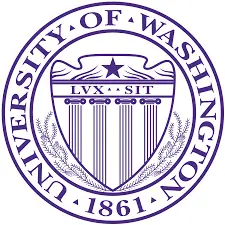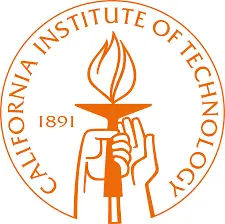Want to know more about the Best Cyber Security Schools In the US and make an informed decision? Here is a good place to start.
Do you have a passion for cyber security but feel lost in a sea of programs? Finding the right course can be a daunting task, but with our expertly crafted guide, we can take the stress out of the decision-making process.
We’ve scoured the US to bring you the best cyber security schools, providing you with a solid foundation to build your career. Are you ready to rise to the challenge and set sail towards a bright future in cyber security?
Here are the top cyber security schools in the US.
Please note that schools are selected based on our criteria (at the end of the article), ranked by the latest acceptance rate.
Table of Contents
#25. Arizona State University


- Acceptance rate: 88%
- Average entry score: 1120-1180 SAT or 22-24 ACT
- Student-to-faculty ratio: 18 to 1
- Estimated cost of attendance (tuition and fees): $32,207
- Average earning potential for graduates: $72,700 (College Simply)
Arizona State University’s cybersecurity programs rely on multidisciplinary research and education, with a focus on making security more accessible and usable for everyone.
By combining the expertise of computer scientists and engineers with legal scholars, policy experts, psychologists, sociologists and other social scientists, the university’s researchers are able to develop solutions that will be effective in the real world.
Cybersecurity students enjoy the opportunity to work with industry professionals to develop real-world solutions for challenges like securing the Internet of Things and preventing data breaches.
Source: ASU
#24. University of Massachusetts Amherst


- Acceptance rate: 79%
- Average entry score: 1060-1280 SAT or 24-30 ACT
- Student-to-faculty ratio: 16 to 1
- Estimated cost of attendance (tuition and fees): $36,581
- Average earning potential for graduates: $75,400 (College Simply)
The University of Massachusetts Amherst shapes future cybersecurity experts with a cutting-edge curriculum focused on both theory and practice. Students enjoy access to world-class faculty, hands-on experience in state-of-the-art labs, and collaborative projects that address real-world challenges.
With interdisciplinary courses, industry partnerships, and a strong emphasis on critical thinking, UMass Amherst prepares graduates to confidently tackle the ever-evolving cyber security landscape and safeguard our digital world.
Source: UMass Amherst
You might also like:
- 10 Highest Paying Cyber Security Jobs To Consider
- Top 30 Majors Most Likely To Change The World In The Next Decade
- 10+ Unexpected Majors That Can Make You A Millionaire In 5 Years
- 10 Highest Paying Computer Science Jobs To Consider
- 15 Must-Read Computer Science Books for Self Study
#23. Texas A&M University


- Acceptance rate: 64%
- Average entry score: 1160-1380 SAT or 25-31 ACT
- Student-to-faculty ratio: 21 to 1
- Estimated cost of attendance (tuition and fees): $26,268-$42,675
- Average earning potential for graduates: $72,200 (College Simply)
Texas A&M University’s cybersecurity programs equip professionals with cutting-edge skills to combat cyber threats. These programs emphasize hands-on learning, real-world projects, and interdisciplinary collaboration.
Graduates emerge as industry leaders, securing vital networks and data and shaping the future of digital security. By partnering with top organizations and researchers, Texas A&M ensures that its cybersecurity professionals excel in today’s dynamic, high-stakes digital landscape.
You might also like:
- 25 Best Data Science Schools In The US 2024
- 15+ New Degrees That Didn’t Exist 10 Years Ago
- 10+ Unexpected Majors That Can Make You a Millionaire
- Top 30 Majors Most Likely to Change the World
- Best Online Courses for Cybersecurity 2024
Source: Texas A&M University
#22. University of Illinois at Urbana-Champaign


- Acceptance rate: 60%
- Average entry score: 1210-1470 SAT or 27-33 ACT
- Student-to-faculty ratio: 21 to 1
- Estimated cost of attendance (tuition and fees): $33,060-$50,510
- Average earning potential for graduates: $92,200 (College Simply)
The University of Illinois at Urbana-Champaign offers top-tier cybersecurity education, equipping students with cutting-edge knowledge and skills. Key programs emphasize hands-on learning, research, and collaboration.
Students benefit from renowned faculty, state-of-the-art facilities, and strong industry partnerships, preparing them for successful careers in the rapidly evolving field of cyber security.
Coupled with the University of Illinois at Urbana-Champaign’s strong reputation and top-ranked academic programs, the school’s cyber security program is a great fit for students looking to get ahead in the tech industry.
Source: The Grainger College of Engineering
Similar articles like this:
- Best Schools For Geography Degrees
- 25 Best Business Administration Schools In The US
- Best Schools For Forensic Science
- 10+ Unexpected Majors That Can Make You A Millionaire In 5 Years
- Jasper AI Review (2023) – Does It Work For Academic Users?
#21. University of Washington


- Acceptance rate: 53%
- Average entry score: 1220-1470 SAT or 29-34 ACT
- Student-to-faculty ratio: 9 to 1
- Estimated cost of attendance (tuition and fees): $30,640-$58,470
- Average earning potential for graduates: $119,900 (College Simply)
The University of Washington (UW) boasts an exceptional cyber security program, led by a team of distinguished faculty. Renowned for their expertise and research, these professors are committed to advancing the field through groundbreaking work.
Students take advantage of their real-world experience, ensuring a comprehensive understanding of current and future cybersecurity challenges. UW’s interdisciplinary approach fosters collaboration, equipping graduates to excel in the ever-evolving landscape of cybersecurity.
Source: University of Washington
#20. University of Maryland College Park
You might also like:
- 25 Best Data Science Schools In The US
- 25 Best Computer Science Schools
- 10 Highest Paying Cyber Security Jobs To Consider
- 15+ New Degrees That Didn’t Exist 10 Years Ago
- 10+ Unexpected Majors That Can Make You A Millionaire In 5 Years


- Acceptance rate: 52%
- Average entry score: 1280-1470 SAT or 30-34 ACT
- Student-to-faculty ratio: 18 to 1
- Estimated cost of attendance (tuition and fees): $10,955-$50,000
- Average earning potential for graduates: $81,300 (College Simply)
The University of Maryland College Park trains cyber security students to be cyber professionals who can defend against threats and develop strategies to prevent future attacks. At the University of Maryland College Park, cyber security programs are designed to produce skilled and innovative experts.
Courses encompass various fields, including ethical hacking, cryptography, and risk management. Students gain hands-on experience through cutting-edge research opportunities and partnerships with industry leaders.
The distinguished faculty, state-of-the-art facilities, and comprehensive curriculum lay the groundwork for graduates to excel in the rapidly evolving cyber security landscape. This ensures they are well-equipped to protect and secure vital systems.
You might also like:
- Best Online Courses for Cybersecurity 2023
- 15+ New Degrees That Didn’t Exist 10 Years Ago
- 10+ Unexpected Majors That Can Make You a Millionaire
- 10 Highest Paying Computer Science Jobs to Consider
- Jasper AI Review (2023) – Does it work for academic users?
Source: University of Maryland
#19. North Carolina State University


- Acceptance rate: 46%
- Average entry score: 1260-1420 SAT or 24-31 ACT
- Student-to-faculty ratio: 15 to 1
- Estimated cost of attendance (tuition and fees): $24,986-$45,771
- Average earning potential for graduates: $69,800 (College Simply)
North Carolina State University offers robust cybersecurity programs, attracting students with cutting-edge courses and renowned faculty.
By enrolling in the Computer Science Department’s Secure Computing Institute, students gain access to comprehensive cybersecurity education, hands-on research opportunities, and strong industry partnerships.
This prepares them for high-demand careers in cyber defense, threat mitigation, and security analytics. The university’s reputation for excellence and commitment to practical application makes it a top choice for aspiring cybersecurity professionals.
Source: NC State University
You might also like:
- 15+ New Degrees That Didn’t Exist 10 Years Ago
- 10 Highest Paying Cyber Security Jobs to Consider
- Top 30 Majors Most Likely To Change The World In The Next Decade
- 10+ Unexpected Majors That Can Make You A Millionaire In 5 Years
- Jasper AI Review (2023) – Does it work for academic users?
#18. University of California San Diego


- Acceptance rate: 34%
- Average entry score: 1270-1480 SAT or 28-34 ACT
- Student-to-faculty ratio: 12 to 1
- Estimated cost of attendance (tuition and fees): $36,061-$65,835
- Average earning potential for graduates: $80,800 (College Simply)
UC San Diego offers cutting-edge cybersecurity certificate programs, equipping students with essential skills to combat cyber threats.
Emphasizing hands-on experience, the curriculum covers topics like network security, cryptography, and risk management. Students learn to identify vulnerabilities, implement security measures, and respond to cyberattacks.
Graduates emerge as savvy cybersecurity professionals, ready to safeguard critical infrastructures and protect valuable data in today’s rapidly evolving digital landscape.
Source: UC San Diego Extended Studies
Similar articles like this:
- Top 30 Majors Most Likely To Change The World In The Next Decade
- Best Online Courses for Cybersecurity
- 15+ New Degrees That Didn’t Exist 10 Years Ago
- 10 Highest Paying Cyber Security Jobs to Consider
- Best FutureLearn Courses
#17. University of Texas at Austin


- Acceptance rate: 32%
- Average entry score: 1230-1500 SAT or 29-34 ACT
- Student-to-faculty ratio: 16 to 1
- Estimated cost of attendance (tuition and fees): $28,928-$57,512
- Average earning potential for graduates: $76,200 (College Simply)
At UT-Austin, cybersecurity programs blend cutting-edge technology with a tight-knit community, fostering collaboration, support, and innovation.
Students engage in practical, hands-on learning, benefiting from strong industry connections and world-class faculty.
This nurturing environment enables graduates to excel in their cybersecurity careers, confidently tackling cyber threats and shaping the future of digital security. The community-driven focus is key to producing successful, well-rounded professionals in a rapidly-evolving field.
Source: University of Texas at Austin
#16. Purdue University West Lafayette


- Acceptance rate: 25%
- Average entry score: 1267 SAT
- Student-to-faculty ratio: 14 to 1
- Estimated cost of attendance (tuition and fees): $24,390-$50,000
- Average earning potential for graduates: $84,800 (College Simply)
At Purdue University West Lafayette, students are immersed in a range of cyber security programs that emphasize hands-on experience and practical skills. Taught by industry-savvy professionals, each course cultivates a collaborative learning atmosphere.
State-of-the art resources like the Cyber security Operations Center provide students with opportunities to work on real-world challenges alongside seasoned experts.
Moreover, the program nurtures a vibrant community through clubs, events, and competitions, further enriching the educational experience.
Source: Purdue University
#15. Boston University


- Acceptance rate: 20%
- Average entry score: 1310-1500 SAT
- Student-to-faculty ratio: 11 to 1
- Estimated cost of attendance (tuition and fees): $79,606
- Average earning potential for graduates: $106,300 (College Simply)
Boston University offers a range of cybersecurity programs that equip students with the knowledge and skills needed to excel in the field. Students learn about cybersecurity management, computer security, network security, computer forensics, and more.
The curriculum is designed to provide hands-on experience, with coursework that covers topics like ethical hacking, risk management, and security policy development. Students can pursue undergraduate and graduate degrees, as well as certificates and continuing education courses.
With a strong focus on practical application, Boston University’s cybersecurity programs prepare students for successful careers in the ever-evolving field of cybersecurity.
Source: Boston University
#14. University of Southern California


- Acceptance rate: 16%
- Average entry score: 1340-1530 SAT or 30-34 ACT
- Student-to-faculty ratio: 9 to 1
- Estimated cost of attendance (tuition and fees): $81,659
- Average earning potential for graduates: $108,200 (College Simply)
USC’s cybersecurity programs emphasize flexibility, catering to diverse student backgrounds and career goals. With customizable degree options, online and on-campus courses, and interdisciplinary approaches, students can tailor their education to their needs.
USC’s renowned faculty, cutting-edge research, and strong industry connections further enhance the program’s success. Graduates are well-equipped to tackle evolving cyber threats, making USC a top choice for aspiring cybersecurity professionals worldwide.
Source: USC Online
Similar articles like this:
- 25 Best Architecture Schools In The US
- 25 Best Biophysics Schools In The US
- 25 Best Computer Science Schools
- 10+ Unexpected Majors That Can Make You A Millionaire In 5 Years
#13. Georgia Institute of Technology


- Acceptance rate: 16%
- Average entry score: 1390 SAT
- Student-to-faculty ratio: 21 to 1
- Estimated cost of attendance (tuition and fees): $31,898-$53,010
- Average earning potential for graduates: $85,000 (College Simply)
Georgia Institute of Technology’s cyber security programs are renowned for their cutting-edge curriculum and extensive resources.
Students benefit from hands-on experience in advanced research labs, access to leading industry partnerships, and mentorship from world-class faculty experts. With a strong emphasis on innovation, the programs offer interdisciplinary courses spanning policy, law, and technology.
Georgia Tech’s commitment to practical learning equips graduates to excel in the rapidly evolving cyber security landscape, making them highly sought-after professionals in the field.
Source: Georgia Tech
What’s it like to study at Georgia Institute of Technology?
#12. Carnegie Mellon University


- Acceptance rate: 14%
- Average entry score: 1480-1560 SAT or 33-35 ACT
- Student-to-faculty ratio: 6 to 1
- Estimated cost of attendance (tuition and fees): $77,474
- Average earning potential for graduates: $89,900 (College Simply)
Carnegie Mellon University cyber security programs blend technical training, applied research and a focus on human behavior to produce graduates who are equipped with the tools they need to become effective security professionals.
As a private research university, Carnegie Mellon has a long history of innovation that continues today. The university is consistently ranked among the top schools in the country for its computer science, engineering and business programs.
Graduates of Carnegie Mellon’s cybersecurity programs have gone on to work at some of the world’s most innovative companies, including Google and Microsoft.
Source: Heinz College
What’s it like to study at Carnegie Mellon University?
#11. University of California Berkeley


- Acceptance rate: 14%
- Average entry score: 1415 SAT
- Student-to-faculty ratio: 17 to 1
- Estimated cost of attendance (tuition and fees): $41,878-$71,632
- Average earning potential for graduates: $114,800 (College Simply)
The University of California, Berkeley’s cyber security programs provide students with the knowledge they need to pursue careers in information security and privacy, forensics, and more.
This school incorporates online learning into their cybersecurity programs, allowing students to pursue their degrees at a convenient pace.
Graduates are equipped with the skills needed to protect and defend computer systems, networks, and data against malicious attacks.
Source: Berkeley School of Information
What’s it like to study at the University of California Berkeley?
#10. Cornell University


- Acceptance rate: 11%
- Average entry score: 1450-1560 SAT or 33-35 ACT
- Student-to-faculty ratio: 9 to 1
- Estimated cost of attendance (tuition and fees): $78,992
- Average earning potential for graduates: $113,700 (College Simply)
Cornell University’s cyber security programs stand out for their multidisciplinary approach, combining cutting-edge technology with policy and management expertise. Esteemed faculty, industry collaboration, and research opportunities draw students eager to tackle cyber threats.
With state-of-the-art facilities, real-world simulations, and strong industry connections, graduates are well-equipped to excel in the rapidly-evolving cyber security landscape.
Furthermore, Cornell’s prestigious reputation and robust alumni network provide a solid foundation for successful careers in this high-demand field.
Source: eCornell
Similar articles like this:
- 25 Best Schools For Economics In The US
- 25 Best Schools For Biology In The US
- 25 Best Schools For English Language and Literature in the US
- 10 Highest Paying Cyber Security Jobs To Consider
#9. Northeastern University


- Acceptance rate: 11%
- Average entry score: 1430-1550 SAT or 33-35 ACT
- Student-to-faculty ratio: 15 to 1
- Estimated cost of attendance (tuition and fees): $78,202
- Average earning potential for graduates: $85,800 (College Simply)
Northeastern University’s cybersecurity programs offer a unique blend of online and in-person learning experiences, giving students the flexibility to study from anywhere.
The programs provide access to cutting-edge resources, such as advanced cyber labs and real-world simulations, that enable students to gain hands-on experience in a safe and secure environment.
Esteemed faculty, including industry experts and leading researchers, provide personalized guidance, ensuring students develop the critical thinking and problem-solving skills needed to combat emerging threats.
Graduates emerge as well-prepared professionals, ready to tackle today’s complex cybersecurity challenges with confidence and skill.
Source: Northeastern University
#8. Johns Hopkins University


- Acceptance rate: 8%
- Average entry score: 1510-1570 SAT or 34-35 ACT
- Student-to-faculty ratio: 7 to 1
- Estimated cost of attendance (tuition and fees): $78,657
- Average earning potential for graduates: $115,900 (College Simply)
Johns Hopkins University offers premier cybersecurity programs, including a Master of Science in Cybersecurity and an online graduate certificate. With a curriculum emphasizing hands-on learning and cutting-edge research, students gain the skills to combat cyber threats.
Graduates find lucrative job prospects in government agencies, tech giants, and leading consulting firms. Renowned faculty and industry partnerships provide valuable networking opportunities, positioning students for success in the rapidly growing cybersecurity field.
Source: Johns Hopkins University
#7. University of Pennsylvania


- Acceptance rate: 6%
- Average entry score: 1460-1570 SAT or 33-35 ACT
- Student-to-faculty ratio: 7 to 1
- Estimated cost of attendance (tuition and fees): $65,790
- Average earning potential for graduates: $135,200 (College Simply)
The University of Pennsylvania’s cybersecurity programs emphasize academic excellence and cutting-edge research. Students benefit from top-tier faculty, hands-on training, and collaboration with renowned institutions.
Graduates find opportunities with prestigious employers, including the National Security Agency, where they tackle complex cybersecurity challenges, safeguard critical infrastructure, and contribute to the nation’s defense.
Penn’s strong industry connections and renowned reputation make it a premier destination for aspiring cybersecurity professionals.
Source: UPenn
#6. Columbia University


- Acceptance rate: 4.1%
- Average entry score: 1440-1570 SAT or 34-35 ACT
- Student-to-faculty ratio: 6 to 1
- Estimated cost of attendance (tuition and fees): $85,000
- Average earning potential for graduates: $97,700 (College Simply)
Columbia University’s cybersecurity programs foster a vibrant learning environment where students develop crucial skills in protecting digital infrastructure.
Taught by renowned faculty, these programs emphasize hands-on experience, collaboration, and innovation. Students engage in cutting-edge research and real-world projects, gaining in-depth knowledge of emerging technologies and cyber threats.
The interdisciplinary approach encourages students to explore diverse perspectives, equipping them with a comprehensive understanding to excel in the cybersecurity industry.
Source: Columbia University
Similar articles like this:
- 25 Best Schools For Linguistics In The US
- 25 Best Liberal Arts Colleges
- 25 Best Genetics Schools
- 25 Best Data Science Schools In The US
#5. Harvard University

Credits: Harvard University
- Acceptance rate: 4%
- Average entry score: 1460-1580 SAT or 33-35 ACT
- Student-to-faculty ratio: 7 to 1
- Estimated cost of attendance (tuition and fees): $76,963
- Average earning potential for graduates: $128,900 (College Simply)
As a reputable institution, Harvard University brings together world-class faculty to train cybersecurity students.
At Harvard University, cybersecurity programs offer cutting-edge knowledge and practical skills to tackle modern digital threats. Students engage in an interdisciplinary curriculum that combines computer science, policy, and law, preparing them to excel in the ever-evolving cyber landscape.
With its innovative research, diverse learning environment, and strong industry connections, Harvard’s cybersecurity programs equip graduates to become leaders in safeguarding critical infrastructure and protecting sensitive information.
Source: Harvard University
#4. Massachusetts Institute of Technology


- Acceptance rate: 4%
- Average entry score: 1570 SAT or 36 ACT
- Student-to-faculty ratio: 3 to 1
- Estimated cost of attendance (tuition and fees): $77,570
- Average earning potential for graduates: $118,100 (College Simply)
Studying cyber security at MIT is an exhilarating experience, surrounded by brilliant minds and cutting-edge technology.
With rigorous coursework and hands-on projects, students are continuously challenged and inspired. Graduates emerge with in-depth knowledge and unparalleled skills, opening doors to prestigious careers in diverse sectors like government, finance, and tech.
These programs empower individuals to protect critical infrastructure, combat cyber threats, and shape the future of digital security.
Source: Cyber security at MIT
What’s it like to study at Massachusetts Institute of Technology?
#3. California Institute of Technology


- Acceptance rate: 4%
- Average entry score: 1530-1560 SAT
- Student-to-faculty ratio: 3 to 1
- Estimated cost of attendance (tuition and fees): $83,598
- Average earning potential for graduates: $90,000 (Payscale)
California Institute of Technology’s cutting-edge cybersecurity programs emphasize a multidisciplinary approach, fostering graduates with exceptional skills in data protection, network security, and cryptography.
Armed with hands-on experience and deep theoretical knowledge, these experts tackle real-world cyber threats, ensuring the safety of digital infrastructures.
Caltech’s cybersecurity graduates are highly sought-after, becoming industry leaders and innovators, safeguarding our increasingly connected world.
Source: Caltech
You might also like:
- Best FutureLearn Courses
- 10 Highest Paying Criminal Justice Jobs To Consider
- Top 30 Majors Most Likely To Change The World In The Next Decade
- 10+ Unexpected Majors That Can Make You A Millionaire In 5 Years
- 15+ New Degrees That Didn’t Exist 10 Years Ago
#2. Princeton University


- Acceptance rate: 4%
- Average entry score: 1570 SAT or 35 ACT
- Student-to-faculty ratio: 5 to 1
- Estimated cost of attendance (tuition and fees): $78,490
- Average earning potential for graduates: $138,930 (Grad Reports)
At Princeton University’s prestigious Department of Computer Science, aspiring cybersecurity professionals undergo rigorous training to think like hackers and develop essential skills for thwarting cyber breaches.
The comprehensive curriculum encompasses vital areas such as cryptography, software security, and web security, ensuring students are well-versed in the latest techniques and technologies.
Furthermore, they have unique opportunities to collaborate with renowned faculty members on independent projects, enabling them to gain hands-on experience and sharpen their expertise in this rapidly evolving field of cybersecurity.
Source: Princeton University
You might also like:
- 25 Best Data Science Schools In The US
- Best Pluralsight Courses
- Best Online Courses For Cybersecurity
- 10 Highest Paying Cyber Security Jobs To Consider
- 25 Best Computer Science Schools
#1. Stanford University


- Acceptance rate: 3.9%
- Average entry score: 1470-1570 SAT or 34-35 ACT
- Student-to-faculty ratio: 5 to 1
- Estimated cost of attendance (tuition and fees): $78,898
- Average earning potential for graduates: $126,400 (College Simply)
Stanford University’s cyber security programs offer comprehensive and flexible learning opportunities for students and professionals. Through interdisciplinary courses, hands-on projects, and online offerings, participants can tailor their education to suit individual needs.
The programs emphasize practical skill development in areas like cryptography, network security, and software security while fostering collaboration with industry leaders.
With options for full-time, part-time, and remote learning, Stanford’s cyber security curriculum adapts to various schedules and career goals, ensuring cutting-edge expertise in this ever-evolving field.
Source: Stanford Online
What’s it like to study at Stanford University?
Conclusion
In today’s digital age, cyber security has become a crucial aspect of our lives, making it essential for aspiring professionals to receive the right education.
This blog post provided a detailed overview of the top cyber security schools in the US, emphasizing the importance of choosing the right institution to achieve success in this field.
By selecting a cybersecurity program from these reputable institutions, students can be confident in their pursuit of a rewarding career in cyber security.
Selection Criteria
Here is a list of the factors we considered when selecting the best cybersecurity schools:
Please note that the order in this list might vary by ranking criteria and sources.
- Reputation and ranking of the school: We looked for schools that have a strong reputation and high ranking in cybersecurity.
- Faculty expertise, qualifications, and specialization: We researched the faculty members and their areas of expertise, and qualifications to ensure that the school has professors with relevant expertise and specialization in the areas of cybersecurity that are of interest.
- Curriculum and resources: We evaluated the curriculum to ensure it aligns with students’ interests and career goals and considered the quality of the school’s facilities and resources, such as labs, equipment, and libraries.
- Opportunities for hands-on learning and research: We looked for schools that provide opportunities for hands-on experience through internships, co-op programs, or fieldwork.
- Student support services and alumni network: We considered the availability of support services and the strength of the alumni network in providing mentorship, internships, and job opportunities after graduation.
- Extracurricular activities and diversity: We evaluated the availability of extracurricular activities and clubs that align with students’ interests and considered the school’s diversity and inclusivity.
- Networking and post-graduation support: We researched the school’s network of alumni and their post-graduation support for cybersecurity students, and also considered if the schools have a strong network of cybersecurity professionals and researchers.
Frequently Asked Questions
Q1. What are the best cyber security schools in the US?
The best cyber security schools in the US are those that provide accredited degrees, have a strong IT program, and top-notch career support services.
Most of the top schools offer both online and on-campus programs to help students balance their lives while earning their degrees.
They include:
- Carnegie Mellon University
- Massachusetts Institute of Technology
- Harvard University
- Stanford University
Q2. How do I get into a top cyber security school?
The first step in getting into a top cyber security school is to make sure your grades are up-to-date and you have the necessary prerequisites for admission.
You should also research which schools offer programs related to cyber security, as well as their rankings. Once you’ve decided on a few schools that fit your needs, apply for admissions!
Q3. How do I know if a cyber security school is good?
There are many factors that determine how good a cyber security school is, including:
- Graduation rate
- The reputation of the school’s professors and alumni
- Job placement rates
- The types of jobs graduates obtain after graduation
Q4. What type of student should pursue a career in cyber security?
Many types of students may be interested in pursuing a career in cyber security. The most common type is someone who enjoys computers and technology but wants to take it to the next level by learning how to secure networks and other devices.
Students from computer science or engineering backgrounds may also find this field interesting because it combines both technical skills and problem-solving abilities (which are important for any job).
Q5. What are the career opportunities in cyber security?
Cyber security is a growing field that offers many different types of jobs and career paths. Some people may choose to enter the field as an IT professional, while others may prefer to work in law enforcement.
The Bureau of Labor Statistics (BLS) projects that employment for all computer science occupations will increase by about 21% from 2021-2031 (much faster than average).
You might also like:
- 10 Highest Paying Cyber Security Jobs to Consider
- 25 Best Data Science Schools In The US
- 10+ Unexpected Majors That Can Make You a Millionaire
- Top 30 Majors Most Likely to Change the World in the Next
- Best Online Learning Platforms
References
[1] Official Websites
[2] Salary Data from Glassdoor, College Factual, Grad Reports, College Simply, and Zippia, among others
[3] Ranking references including news media such as Best Undergraduate Cybersecurity Programs.


